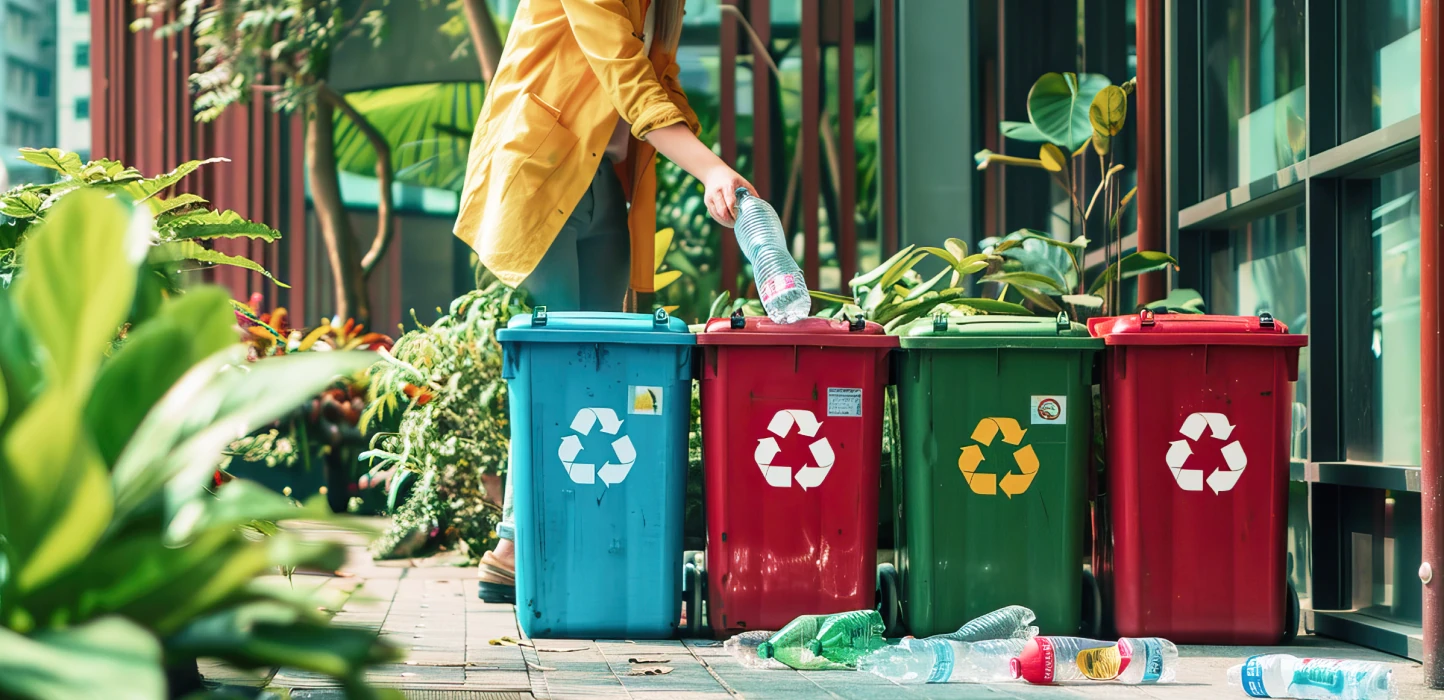Waste and Resources Management


Our Commitment
JMT Network Services Public Company Limited recognizes the importance of pollution management and efficient resource utilization across all business processes to achieve a balance between economic development, environmental care, and long-term sustainability.
The company is committed not only to reducing environmental impacts from its business operations but also to developing processes that enhance stability and sustainability in both business and social dimensions. The company implements a range of measures, including reducing emissions from internal organizational activities, maximizing resource efficiency by minimizing waste, and restoring and recycling used resources to extend their lifespan and reduce the demand for new resources. Additionally, the company promotes the adoption of environmentally friendly technologies and innovations, while fostering awareness among employees and business partners to cultivate a corporate culture that supports sustainable resource use.
These efforts aim to deliver positive outcomes for the environment, society, and the economy, ensuring long-term sustainability.
Stakeholders Directly Impacted
Supporting the SDGs Goals
SDG 7
SDG 12
SDG 13
SDG 15
Goals and Performance


Goals
- Reduce the amount of waste generated from internal operations by 5% per employee by 2026, compared to the 2022 baseline.
- The amount of waste that can be recycled annually should be no less than 5% of the total waste.
Performance
In the year 2024, from January 1 to December 31, 2024, the company generated a total of 55,166 kilograms of waste from its operations and waste separation efforts. This contributed to a reduction of 64,882.85 kgCO2eq,

Management Approach
JMT Network Services Public Company Limited (JMT) recognizes the importance of sustainable business operations and is committed to creating positive impacts in all dimensions, including economic, social, and environmental aspects. The company prioritizes efficient resource management, particularly waste management, which is a key factor in responsible business practices.
In alignment with sustainability goals, one significant example of this commitment is sustainable waste management. The company has initiated various waste management projects, such as joining the Care the Whale network of the Stock Exchange of Thailand. This collaboration supports best practices in systematic waste management within organizations and encourages employees to reduce waste generation at the source by correctly segregating waste and maximizing its potential through recycling and upcycling concepts.
Additionally, the company has implemented internal programs to raise environmental awareness among employees. These initiatives include organizing waste exchange activities, installing awareness campaign signs in work areas, and encouraging employees to adjust their daily resource usage behaviors to minimize unnecessary waste.
The company is well aware that improper waste management can have severe impacts on the environment and surrounding communities. Therefore, JMT promotes continuous involvement from executives and employees at all levels in the waste management process. This is achieved through designing projects that aim to minimize negative impacts, such as reviewing waste management processes, improving internal systems, and collaborating with external partners to enhance the effectiveness of waste management practices.
Waste Management in Office Areas
JMT Network Services Public Company Limited (JMT) is committed to conducting business responsibly towards the environment by focusing on sustainable waste management within its office buildings. The company promotes efficient waste segregation processes and raises awareness among employees to support the organization’s environmental goals.
The company has improved the waste segregation process within the office area to be clearer and more systematic. Thirteen key waste segregation points have been established throughout the office space, each equipped with waste bins classified as follows:
General Waste
Recyclable Waste
Organic Waste
This process is carried out under the concept of "Invisible Waste," which focuses on reducing the amount of waste sent to landfills by encouraging employees to segregate waste at the source. This ensures that the segregated waste can be recycled or disposed of appropriately according to its type.
Additionally, the company prioritizes raising awareness and enhancing understanding of waste management among employees through training, communication, and the installation of clear signage on how to segregate waste at visible locations, such as near waste disposal points, so that all employees understand and can implement proper practices.
The company aims to promote changes in employees' daily waste management behaviors to create an environmentally friendly organizational culture. The goal is to minimize the amount of waste sent to landfills while maximizing the amount of waste that is processed for recycling.
Summary of Waste Separation Performance at JMT Headquarters (Data as of December 31, 2024)
*Summary compiled from the Stock Exchange of Thailand Climate Care Platform - SET Social Impact.
| Title | Unit | 2023 | 2024 | |
|---|---|---|---|---|
| The total amount of waste generated from operations | Kilogram | 49,912.70 | 55,166.00 | |
| The amount of waste disposed of through landfilling | Kilogram | 42,941.00 | 43,461.50 | |
| The amount of waste utilized | Kilogram | 6,971.70 | 11,704.50 | |
| Classified by type of waste and management method: | ||||
| Total general waste | Kilogram | 49,912.70 | 55,166.00 | |
| Recycled | Kilogram | 0 | 0 | |
| Sold for recycling | Kilogram | 6,143.40 | 11,642.50 | |
| Donated for recycling | Kilogram | 828.30 | 11,642.50 | |
| Sent for disposal | Landfilling | Kilogram | 49,941.00 | 43,461.50 |
| Incineration | Kilogram | 0 | 0 | |
In the year 2024, from January 1 to December 31, 2024, the company generated a total of 55,166 kilograms of waste from its operations and waste separation efforts. This contributed to a reduction of 64,882.85 kgCO2eq, equivalent to planting 7,209 ten-year-old trees.


